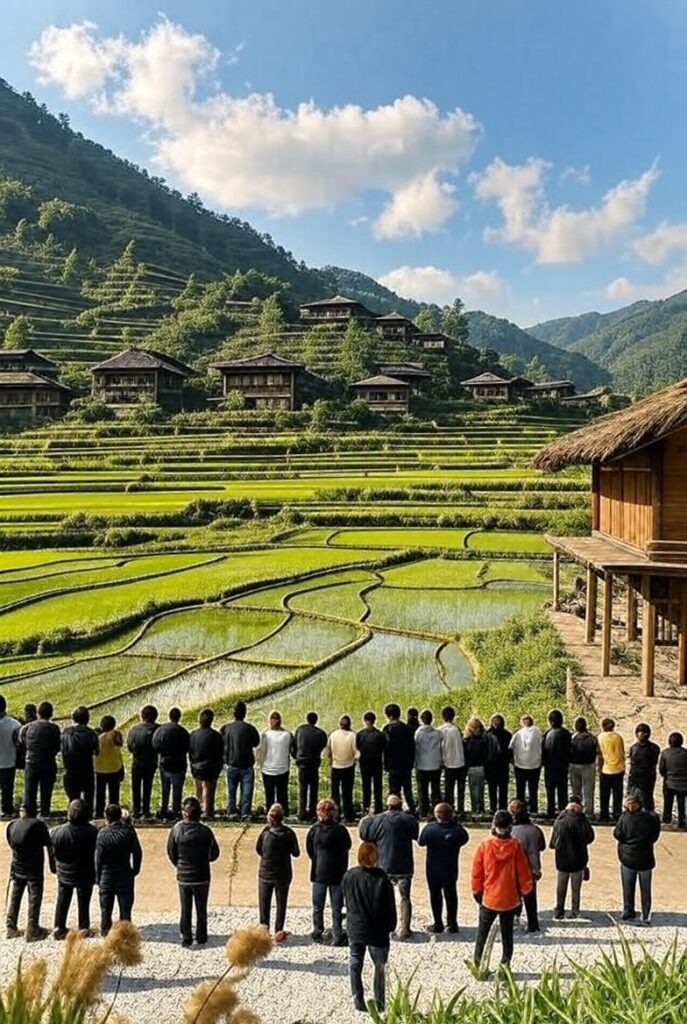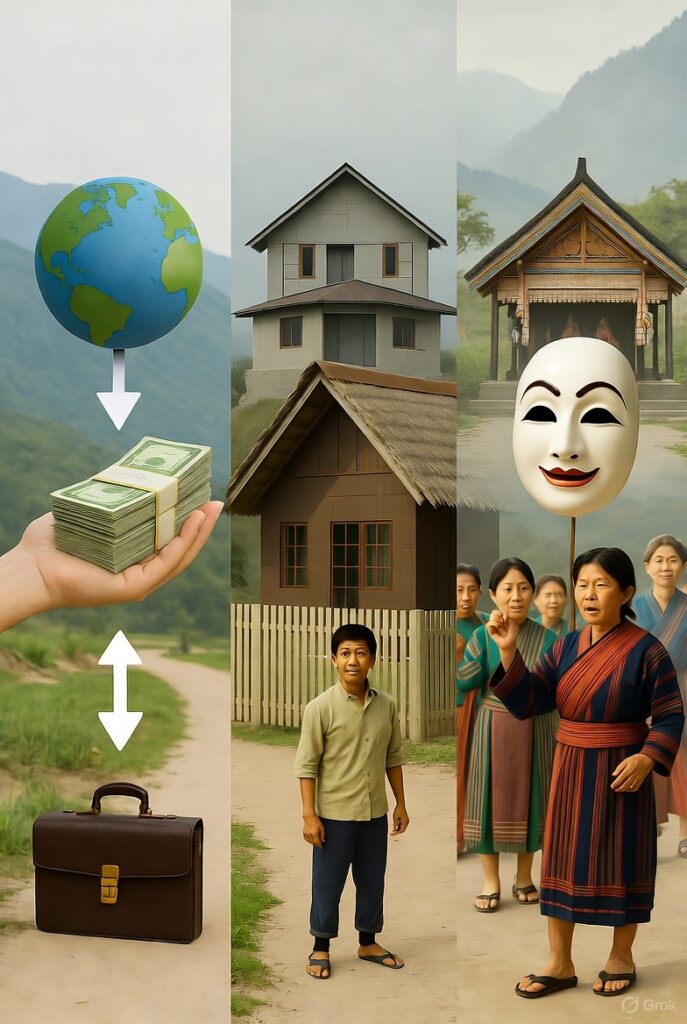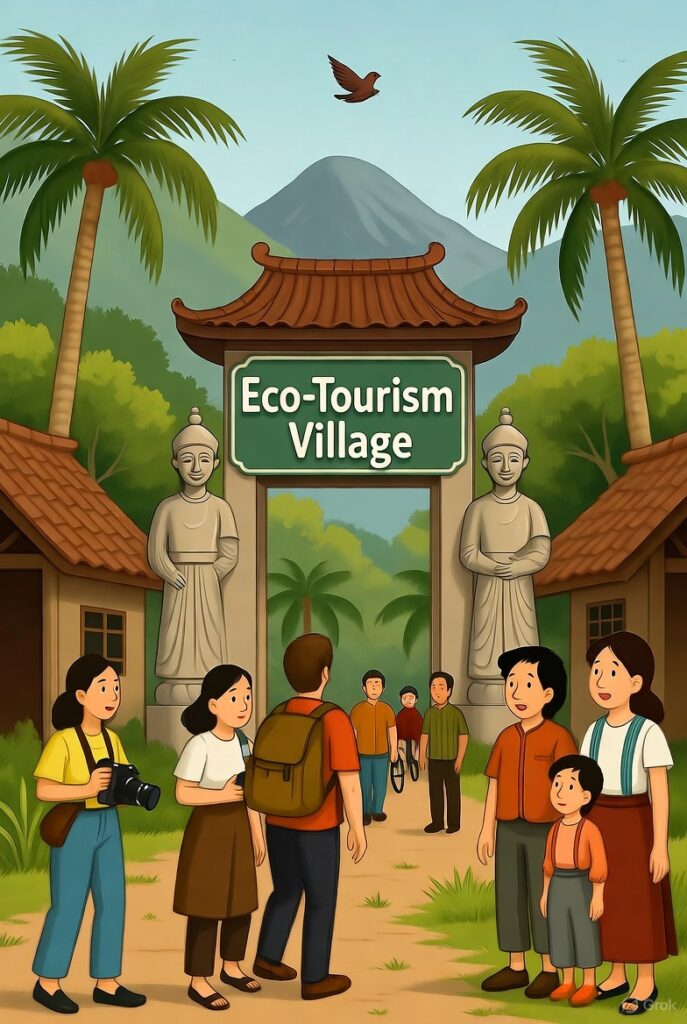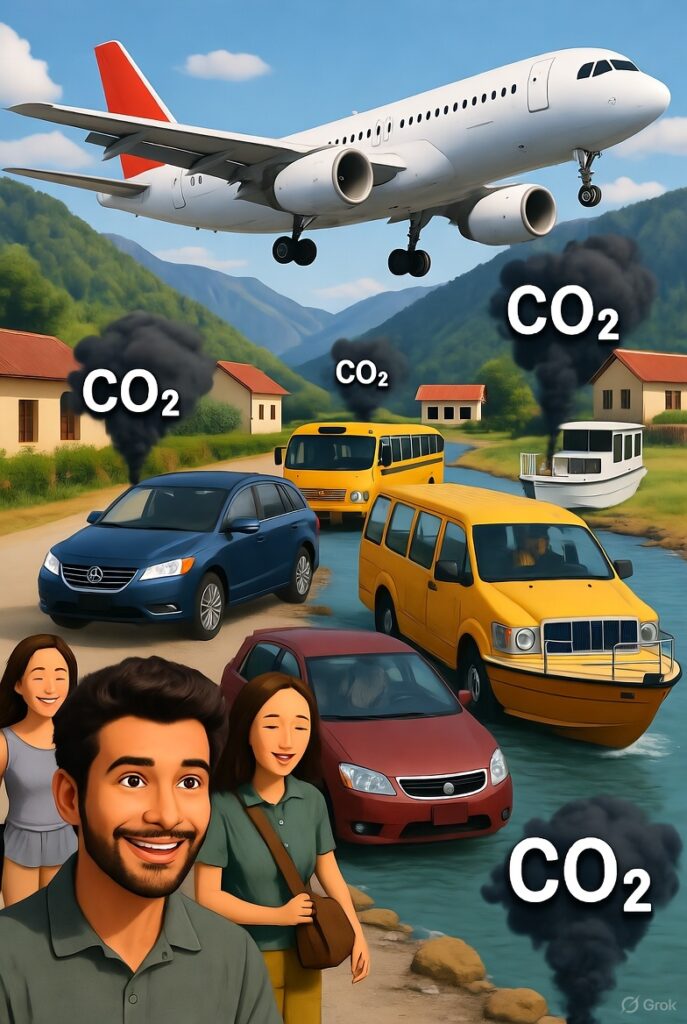- why “green travel” can sometimes hurt nature and local communities
New tourism model sought for Europeans
The global problem of over tourism, and why Bali is at a tipping point

The biggest problems in eco-tourism today are about nature, local people, and real impact.
1. Too many tourists
When many tourists visit one place, it can hurt nature. Paths in forests and mountains can get broken or muddy, flowers and plants can be destroyed, and animals can get scared or leave their homes. Water in rivers or lakes can become dirty from trash or sunscreen, and beaches can get full of garbage. Even small villages can become crowded, and local people may feel uncomfortable with too many visitors.
2. Fake eco-tourism (greenwashing)
Some companies say they are “eco-friendly,” but they do not help the environment or local communities. For example, a hotel may say it is eco, but it uses too much water or electricity. Or a tour may advertise nature experiences, but it damages the forest or wildlife. Tourists may think they are doing something good for nature, but the real impact can be negative.

3. Local people do not get enough benefit
Often, money from eco-tourism goes to big companies or people outside the village, not to local families. Sometimes, villagers lose their land or are forced to change their homes for tourists. Local culture, traditions, and festivals can become like a show for visitors instead of real life. People may get jobs with low pay or only work in restaurants or shops for tourists, not in their normal farming or craft work.

——-end of audio———-
4. Travel pollution
To visit eco-tourism places, tourists often use planes, cars, or motorboats. These vehicles create carbon dioxide (CO₂), which is bad for the climate and air. Even if the place is “eco,” the journey itself can make a big pollution problem. Sometimes, local buses or boats are not modern or clean, and this adds to air and water pollution.

5. No clear rules or standards
There are very few official rules for eco-tourism. Some tours are really good for nature and local people, but others are bad. Tourists cannot always know if a hotel, guide, or tour is really eco-friendly. Without rules, some companies may cheat or lie about helping nature, and local people may not get fair benefits.
✅ Summary: Eco-tourism can be very good, but the main problems are: too many tourists, fake eco claims, little benefit for locals, pollution from travel, and no clear rules. These problems can hurt nature, animals, and local people, even if the trip is called “eco.”
######################
Cheat sheet:
| Problem | Details / Examples | Impact |
|---|---|---|
| Too many tourists | – Crowded forests, mountains, and villages – Paths and plants damaged – Animals scared or leave homes – Rivers, lakes, and beaches polluted with trash | – Nature is damaged – Wildlife loses habitat – Local people feel uncomfortable |
| Fake eco-tourism (greenwashing) | – Hotels or tours say “eco” but use too much water/electricity – Nature experiences can harm forests or animals – Companies claim to help but do not | – Tourists are misled – Real environmental problems continue – Nature and wildlife are harmed |
| Local people do not benefit | – Money goes to big companies, not villages – Villagers may lose land or homes – Culture becomes a “show” for tourists – Low-paid jobs replace normal life | – Villagers stay poor – Traditions are lost or changed – Local people feel exploited |
| Travel pollution | – Planes, cars, and boats produce CO₂ – Air and water pollution from vehicles – Even “eco” trips cause climate problems | – Contributes to climate change – Air quality decreases – Local environment suffers |
| No clear rules or standards | – Few official rules for eco-tourism – Some tours really help, others harm – Hard for tourists to know which is good | – Companies may cheat – Locals may not get fair benefits – Nature and culture can be harmed |
✅ Summary: Eco-tourism can help nature and communities, but the main problems are too many tourists, fake eco claims, little local benefit, travel pollution, and no rules. These problems can hurt nature, animals, and people, even if the trip is called “eco.”